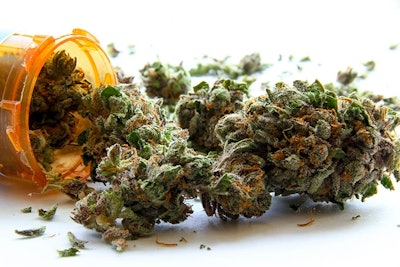
Atomazul | Adobe Stock
This week, Illinois Gov. J.B. Pritzker approved legislation that makes the state’s medical cannabis program permanent, while also expanding the list of qualifying conditions that can be treated with medical marijuana. Elsewhere, in New Mexico, the health department secretary will decide whether to limit medical cannabis cultivation to 1,750 mature plants per producer.
Here, we’ve rounded up the 10 headlines you need to know before this week is over.
- Utah: Three companies are continuing to protest Utah’s decision to award a smaller number of medical cannabis cultivation licenses than allowed by law. Pure UT, Total Health Sciences and JLPR are appealing the state’s decision to reject their complaints to the Procurement Policy Board. Read more
- New Mexico: The state is preparing to overhaul its medical cannabis market after a hearing officer endorsed key provisions of a plan designed to shore up cannabis supplies to New Mexico’s medical marijuana program without flooding the expanding market. State Health Department Secretary Kathyleen Kunkel now has the final say on whether to limit medical cannabis cultivation to 1,750 mature plants per producer. Read more
- Idaho: Medical cannabis advocates can start gathering signatures for a 2020 ballot initiative after Idaho Secretary of State Lawrence Denney announced that the petition filed with his office has met all requirements. Advocates have until April 30, 2020, to collect 55,057 signatures from registered Idaho voters to get an initiative on the general election ballot. Read more
- California: California Attorney General Xavier Becerra released a 16-page document that outlines current cannabis regulations and guidelines, and many speculate it could mean more enforcement action against illegal cannabis cultivators. While it does not state any new rules, the document provides law enforcement with an extensive history on cannabis legislation and guidelines. Read more
- Researchers at UC Davis have partnered with Biopharmaceutical Research Company, a federally compliant pharmaceutical company, to analyze the chemical and biological profiles of cannabis for the benefit of law enforcement, health care providers and scientific professionals. UCD and BRC researchers will analyze legally acquired cannabis materials in BRC’s labs to understand the chemical composition of THC, CBD and other cannabinoids. Read more
- Alabama: The Medical Cannabis Study Commission held its first meeting Aug. 13. The commission is tasked with recommending legislation about medical cannabis in the state, which will be considered in the 2020 legislative session. Read more
- Massachusetts: State cannabis regulators are considering trying out marijuana cafes, licensing home delivery businesses, changing the license fee structure and eliminating the annual registration fee for medical cannabis patients. Public hearings were held Aug. 14 at the Health Policy Commission, and the public had until the end of the day Aug. 15 to provide comment. Read more
- Illinois: Gov. J.B. Pritzker approved legislation Aug. 12 that makes the state’s medical marijuana program permanent and adds a list of new qualifying conditions. Pritzker said the legislation “brings our medical cannabis program in line with my administration’s vision for equity and it makes adjustments for the lessons that we’ve learned since its inception.” Read more
- Iowa: Iowa Relief officially launched this week as the state’s second licensed medical marijuana manufacturer. The company plans to release a tincture as its first product. Read more
- Ohio: A state medical board committee decided not to recommend adding anxiety and autism spectrum disorder to the state’s list of qualifying conditions for medical cannabis after hearing from four physicians and reviewing several letters opposing the proposed conditions. The decision was a reversal from the committee’s decision in May to recommend adding the two conditions. Read more

























